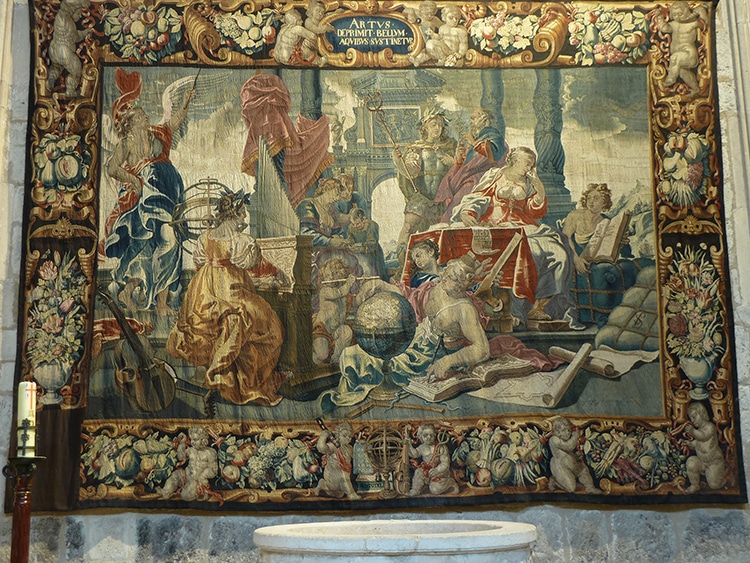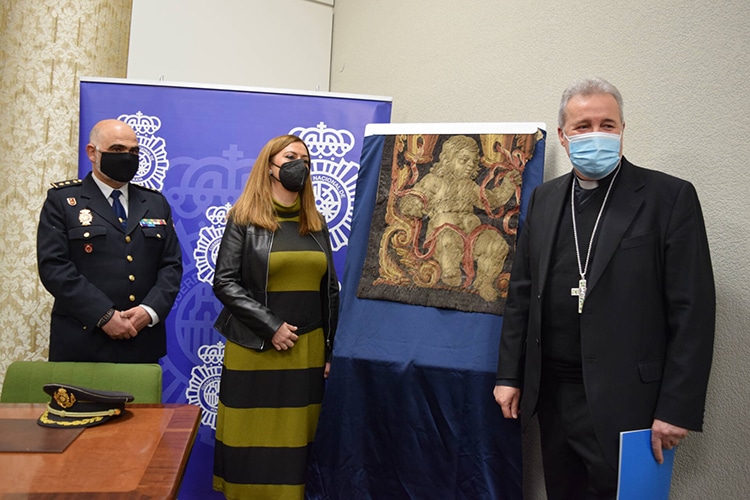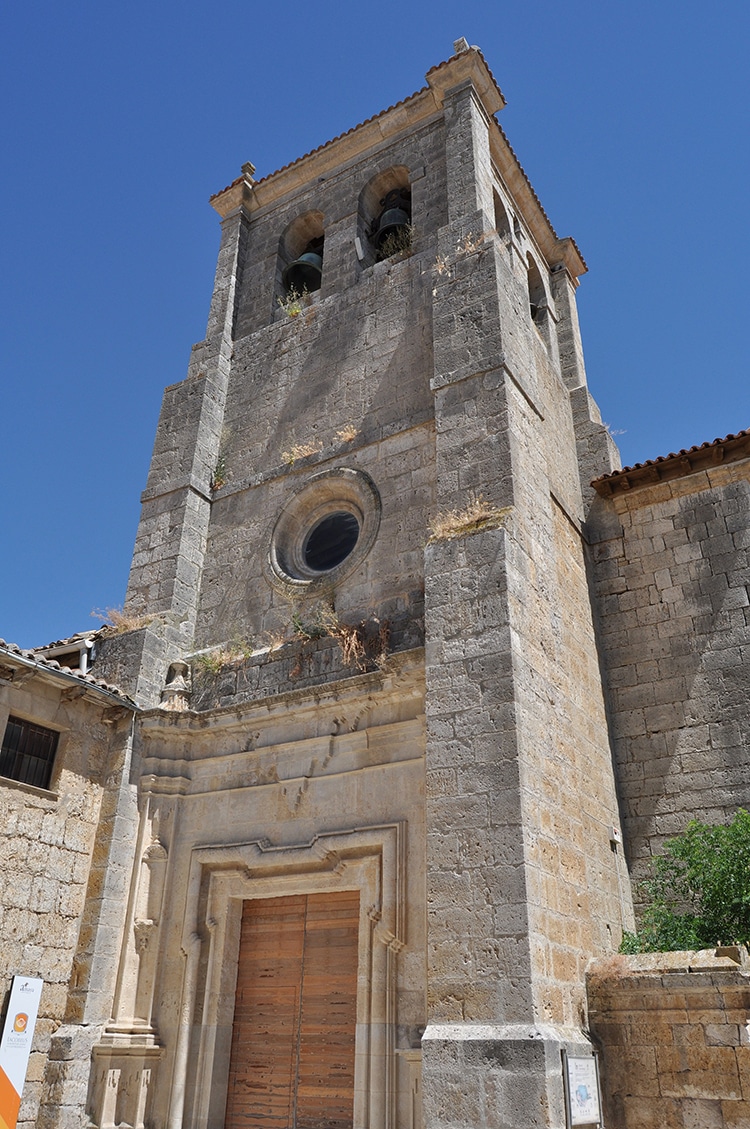
“The Apotheosis of the Arts,” by Corneille Schutz, in the Church of Santo Domingo in Castrojeriz, Spain. The missing segment is in the bottom left corner. (Photo: Wikimedia Commons, CC BY-SA 4.0)
It was dawn in the small town of Castrojeriz in northern Spain on November 7, 1980. A man named René Alphonse Ghislain van den Berghe crept into the church. Better known as Erik the Belgian, the man made off with six large 17th-century Flemish tapestries by Corneille Schutz, a Flemish Renaissance painter and tapestry. Although the tapestries were recovered within several years by Interpol, one—entitled The Apotheosis of the Arts—was missing a 2'x2′ segment containing a cupid in the lower left corner. Now, 42 years later, the piece has been recovered and reunited with the whole work.
The tapestry in question depicts the categories of the liberal arts in allegorical form. It was crafted around 1654 in Bruges by Schut. The artist was close with Rubens (his mentor) and even had his portrait sketched by Anthony van Dyck. The missing corner of the tapestry contains an angel figure, but its guardian angel turned out to be Ángel Alcaraz, an investigator with the Spanish National Police. Last year, Alcaraz decided to pursue the long-lost textile. He contacted a former lawyer for Van den Berghe who was able to lead him to the missing piece. It was at last returned to the Church of Santo Domingo in the Archdiocese of Burgos.
As for Van den Berghe, his decades of art theft ended with his capture in 1982. He had turned his post-World War II career of buying abandoned art and reselling it into an illicit campaign of successful art theft. Although he stole over 6,000 luxury items by his own calculation, he only served a short time in prison. After his release, he helped officials track down the stollen items until he died in 2020. Certainly he seems to have maintained an element of pride in his thefts. This theft has at last been fully solved, and one precious work is restored to its rightful home.
A stolen fragment of a 17th-century tapestry has at last been found and returned to its home in a Spanish church.

The tapestry segmented at last returns. (Photo: Archdiocese of Burgos)
The tapestry is The Apotheosis of the Arts by Corneille Schutz.

The Church of Santo Domingo in Castrojeriz, Spain. (Photo: Wikimedia Commons, CC BY-SA 2.0)
In 1980, the famed art thief known as Erik the Belgian stole the tapestry. When it was eventually recovered, a fragment was missing.

“Cornelis Schut(z),” by Anthony van Dyck, between 1628 and 1636. (Photo: Wikimedia Commons, Public domain)
h/t: [Smithsonian Magazine]
Related Articles:
Vanitas: Paintings by the Dutch Old Masters Inspired by Life and Death
The History and Legacy of Leonardo da Vinci’s Mysterious ‘Mona Lisa’
10 Famous Renaissance Artists Whose Work Transformed the Art World
Dissecting Leonardo da Vinci’s Famous ‘The Last Supper’ Painting






















































































